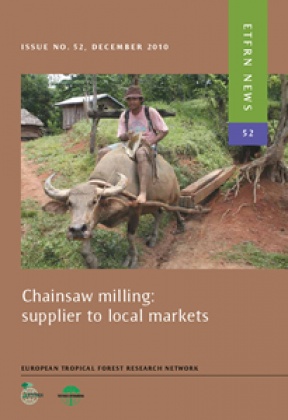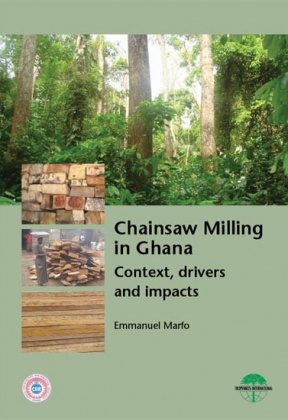The importance of the domestic timber trade for FLEGT and REDD
-----------------
ropenbos International would like to invite you to an informal networking event on 23 November 2011, to learn about the practical dilemmas of regulating domestic timber markets. During this seminar our partners from Ghana and Guyana will briefly present their experiences, after which there will be time for informal interaction and discussions.
Timber production and trade take place in an increasingly globalised economy. The growth in population and economic wealth, especially in developing countries, increases the demand for forest products and puts more pressure on natural resources. Timber production for the domestic market represents a high percentage of total timber production in tropical countries. There is growing recognition that this local timber production and consumption in tropical countries should be incorporated in international forestry initiatives, such as FLEGT and REDD.
Domestic timber markets in developing countries are often supplied by timber harvested in small-scale forestry operations and processed with chainsaws (chainsaw milling). In many countries, small scale production leads to a range of social, environmental and law enforcement challenges. Along with several local partners, Tropenbos International (TBI) supports the implementation of FLEGT VPAs and REDD in Ghana and Guyana, which is a REDD partner country but deliberating on the FLEGT options. We do that by involving stakeholders in dialogue about domestic timber production and trade and information gathering to develop solutions for, and alternatives to unsustainable chainsaw milling practices.
Addressing chainsaw milling in Ghana and Guyana through multi-stakeholder dialogue
Chainsaw milling is the on-site conversion of logs into lumber using chainsaws. Significant and increasing amounts of timber in the tropics for local markets are produced using this simple technology. For many local and indigenous forest dependent communities, chainsaw milling is an important source of income.
TBI is implementing an EU-funded project that aims to find sustainable solutions to the problems associated with the production of lumber for local timber markets by involving all stakeholders in dialogue, information gathering and the development of alternatives to unsustainable chainsaw milling practices.
More information about the project in Ghana and Guyana:
- Securing legal domestic lumber supply through multi-stakeholder dialogue in Ghana
- Supporting sustainable chainsaw milling through multi-stakeholder dialogue in Guyana
Objective
The project’s overall objectives are to reduce poverty and promote viable livelihoods in forest-dependent communities; reduce illegal logging; and promote the conservation and sustainable management of tropical forests in Ghana and Guyana.
This project is funded by the European Union
EuropeAid Cooperation:http://ec.europa.eu/europeaid/index_en.htm
EU delegation Ghana: http://eeas.europa.eu/delegations/ghana/index_en.htm
EU delegation Guyana: http://www.delguy.ec.europa.eu/
Duration
2007 - 2015
---------------



